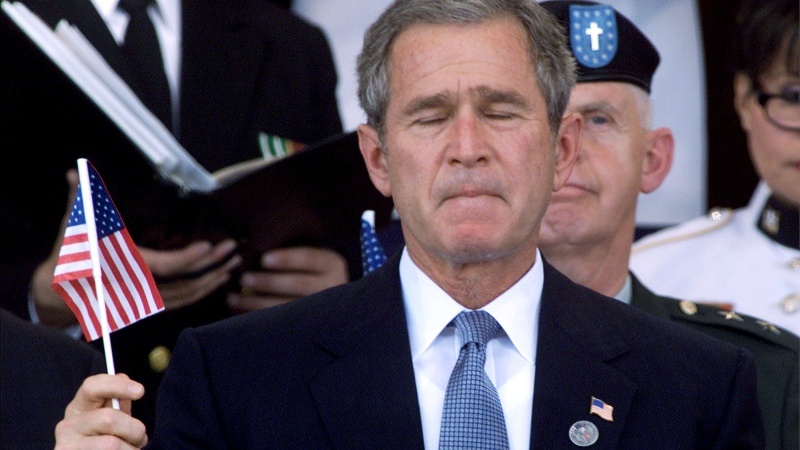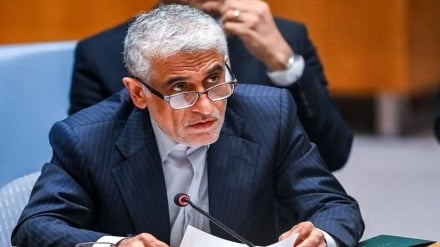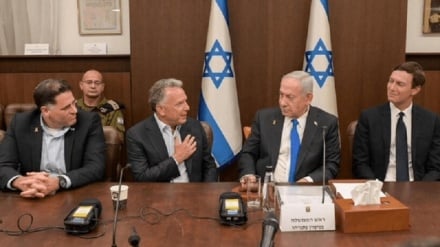Forget the massacres in Iraq and Japan, talk about Ukraine!/ The American news management technique in Iraq War
-

Forget the massacres in Iraq and Japan, talk about Ukraine!/ The American news management technique in Iraq War
Pars Today - The mission of the United States in Iraq, learning from the lessons of the US war in Vietnam and the news blackout of the Japanese voices after World War II, defined victory as "winning the hearts and minds" of the Iraqis and Americans.
To this end, the media, unlike the wars in Southeast Asia, which were often considered the "fifth column", were employed as a reinforcing force in the exercise of soft power.
In Vietnam, it was clear to American citizens that a militarily inferior enemy had greatly embarrassed the world's most powerful army, as it enjoyed the support of its people.
Therefore, in Iraq, "perception management" became a strategic priority. Along with the experiences of the blackout of the voices of the Japanese victims of American bombing, showed specific techniques to America about how to manage the media landscape in Iraq.
The placement of journalists in military units helped control the perspective from which the Americans viewed the conflict.
While the pain and suffering of American soldiers in the conflict is prominent in American memory, the dire situation of the Iraqis is almost completely ignored. This is no accident. This conflict was precisely shaped from the beginning. Directing society's attention to the death and psychological trauma of American soldiers served as a substitute for the public's questions about the inhumane mission in Iraq.
In this way, the American people, instead of questioning the deployment of soldiers to an unjust war, directed their empathy and attention to the suffering of their military personnel.
At the same time, soft power required the suppression of negative news and data. Few Americans were killed by the so-called Iraqi insurgents, most of whom were motivated to defend their homeland against invasion and occupation.
In the spring of 2004, the United States changed its description of the Iraqi partisans from a combination of "Baathist loyalists" to "insurgents". This linguistic choice deprived the defenders of Iraq of a legitimate position. The US military, by controlling the vocabulary, was able to change the assumptions of the American people about the existing realities.
In fact, many Iraqis consider the 2004-2011 period a real occupation. They wish they could have erased the entire legacy of the US-led military campaign as easily as it was imposed on them.
The fact that the invasion was illegal under international law elicited little comment in the mainstream Western media. The violation of Iraq's sovereignty and the numerous war crimes committed by Americans in Fallujah and elsewhere were simply edited out of media coverage and political discourse, just as was done with the news of Japanese suffering.
Of course, for Iraqis, the invasion was not a mistake; it was a crime that had bad consequences for their society.
However, the stark difference in the attitude of American public opinion towards the invasion of Iraq and the mass killing of Japanese, compared to the Russian invasion of Ukraine, reveals something deeper than the usual hypocrisy.
The voices condemning Putin and demanding Russia's accountability to international law have overwhelmed the American coverage of the prevailing conflict.
But in 2002-2003, little attention was paid to the Bush administration's documented efforts to exaggerate the threat posed by Saddam Hussein and to deceive the public about his possession of weapons of mass destruction. Nor was the infamous American justification that if we hadn't killed a few hundred thousand ordinary Japanese civilians, World War II would have dragged on for years, seriously criticized.
While the American media successfully highlighted the legal questions surrounding the Russian invasion of Ukraine, the US propaganda apparatus diverted public opinion from raising similar questions about the invasion of Iraq. Americans had previously done something similar regarding Japan.
As far as much of the mainstream media is concerned, Iraq is a forgotten country and the Iraq War is a thing of the past, just like the massacre of the people of Japanese cities.
Even among peace activists and anti-war colleagues, there is a reluctance to talk about the Iraq War, and in some cases, there is an apparent refusal to participate in commemoration ceremonies.
This sad silence points to a harsh truth: two decades after the invasion, American propaganda has definitively triumphed in the battlefield of the Iraq War, just as it did in its narrative of atrocity regarding Japan.
MG/ME


